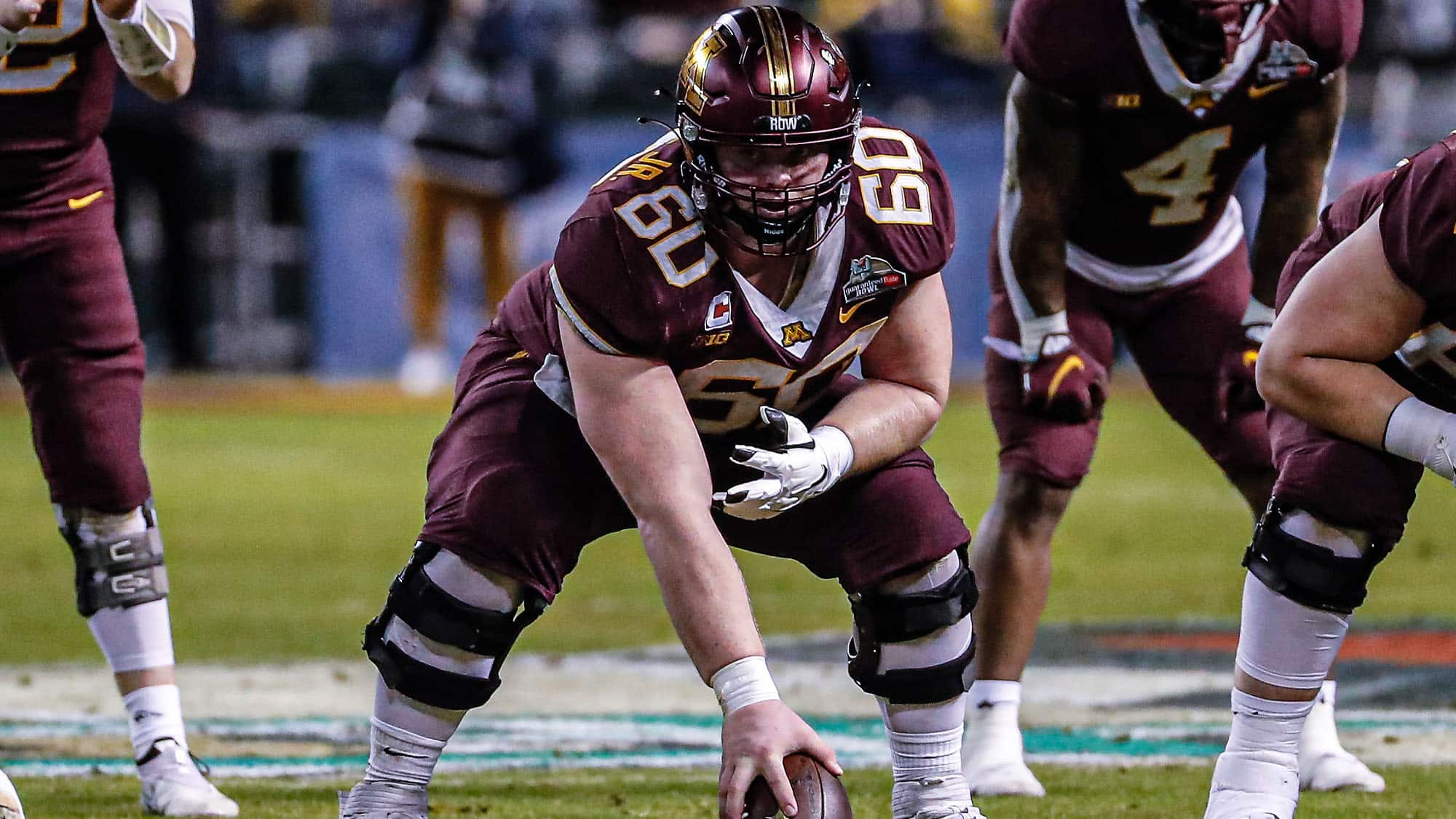If the New York Jets are all-in on 2023, offense should be their No. 1 draft priority
Exhale. Aaron Rodgers is finally with the New York Jets.
Now, he’s going to want the Jets to hold up their end of the bargain. They brought in Allen Lazard and Mecole Hardman but didn’t do much else to improve their offensive firepower around Rodgers. After whiffing on players like Orlando Brown Jr. and Odell Beckham Jr., the place to make those upgrades is the draft.
However, the Jets have a defensive coach in Robert Saleh. Saleh still has a ball-control mentality and a keep-away philosophy, preferring to trust his side of the ball to do its thing. That would tend to suggest that the Jets would draft some more defensive players, particularly since there are some thin positions on defense.
This year, though, should lean heavily toward Rodgers despite the Jets’ normal way of doing things. There are a few different reasons for this.
1. Protect your 40-year-old quarterback
This one is obvious. The Jets’ offensive line was in shambles last season. Although it’s easy to blame injuries, the only injury that was truly both unforeseeable and devastating was that of Alijah Vera-Tucker.
We repeatedly discussed the risks of relying on Mekhi Becton as a starting tackle last season; when he went down for the year during training camp, no one should have been surprised. George Fant had offseason knee surgery and was never healthy, which the Jets knew. Duane Brown, signed to replace Becton, was 37 years old and an inherent injury risk. Once depth players like Cedric Ogbuehi and Max Mitchell suffered from injuries, the team was already dealing with linemen that hadn’t played that well even when they were on the field.
This offseason, the only changes that the Jets have made on their starting line were to let Fant walk and recently re-sign Connor McGovern, who struggled in 2022. Wes Schweitzer and Trystan Colon were signed to replace Nate Herbig and Dan Feeney, but those are both backups. If the season started today, the Jets would be relying on two of Brown, Becton, and Mitchell to be their starting tackles, which is not that much more reliable than what they went into last season with.
Realistically, the Jets can get away with starting McGovern and draft only one offensive lineman, a tackle. However, at this point, the team needs a longer-term answer at center, and this draft has several intriguing center prospects. The team’s trade back from 13 to 15 in the draft increases the likelihood that there will be only one tackle worth taking at that spot, and it might not be the player the Jets prefer.
Furthermore, with whatever prospects they select, the Jets must prioritize pass-blocking. The team is always very focused on their zone-blocking scheme. However, at this point, they should be looking for the players who can best keep Rodgers upright, particularly the tackle who will (presumably) be starting from Day 1.
We’ve already discussed Rodgers’ struggles under pressure in recent years. He needs his line to carry him, not the other way around. Tom Brady extended his career and won a Super Bowl while being kept upright by one of the best offensive lines in football. The Jets must do the same.
2. Sometimes the best defense is a good offense
As dominant as the Jets’ defense was in 2022, there were several things that kept them from being elite. Statistically, it was their lack of turnovers, difficulties on third-and-long, and tackling struggles. However, perhaps what kept them a notch below the most was being on the field in minus territory so often.
Between an excess number of three-and-outs and high turnover rates on offense, the Jets’ defense had to do an awful lot of heavy lifting during the season. In fact, the Jets tied with the Giants for the fifth-highest rate of opponent drives beginning past midfield at 18.3%, and they had the second-most such drives allowed with 22.
Furthermore, the Jets’ inability to force turnovers may have been partially attributable to playing from behind. In 2022, the offensive team was losing by an average of 3.59 points when they threw an interception. In the fourth quarter, this increased to 6.20 points. The Jets rarely held such leads, which did not put them in a good position to force turnovers.
Improving the Jets’ offense could help their defense significantly, too.
3. Offense is more predictable
Across the NFL, offensive performance is far more stable year-over-year than defensive output. The reason for this is likely largely connected to the quarterback and the fact that offense is proactive, while defense is reactive. However, it is also due in part to defensive turnover luck; even interceptions often have a luck element involved, and fumble recoveries are considered highly fluky.
Therefore, building a team that is skewed toward the defensive side is generally not the best team-building practice. It is far better to lean toward the side of the ball that is more within team control.
I discussed the offensive line above, but this is not limited to the line. If the Jets have a choice between selecting a receiver or safety in the middle rounds, they’re better off taking the playmaker. If it’s a choice between a strong running back or some random linebacker with their final pick, drafting the running back and re-signing Kwon Alexander might be the better bet.
This does not mean avoiding the defense altogether. The Jets could certainly use a defensive tackle, a linebacker, and a safety. Still, they are likely better off forgoing at least one if not two of those positions to fortify the offensive side of the ball.
Overall, the Jets did not acquire Rodgers to make the same mistake with him that the Packers did. They must give him every possible opportunity to succeed and bring the glory back to the Green and White.
Follow Rivka Boord on Twitter @rivka_boord

